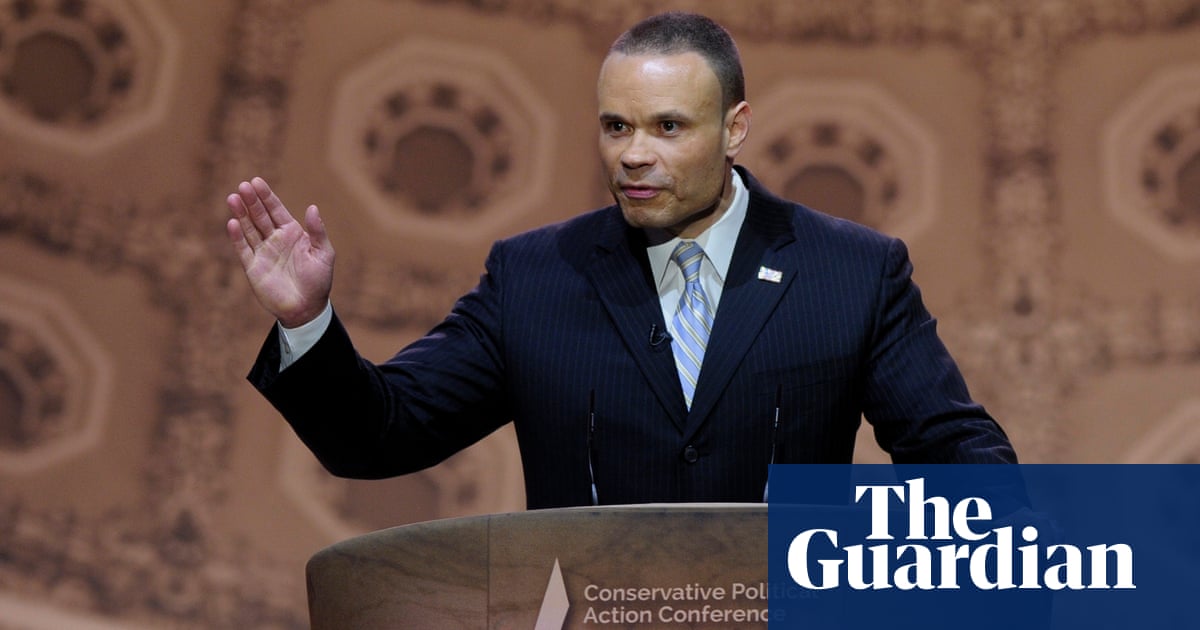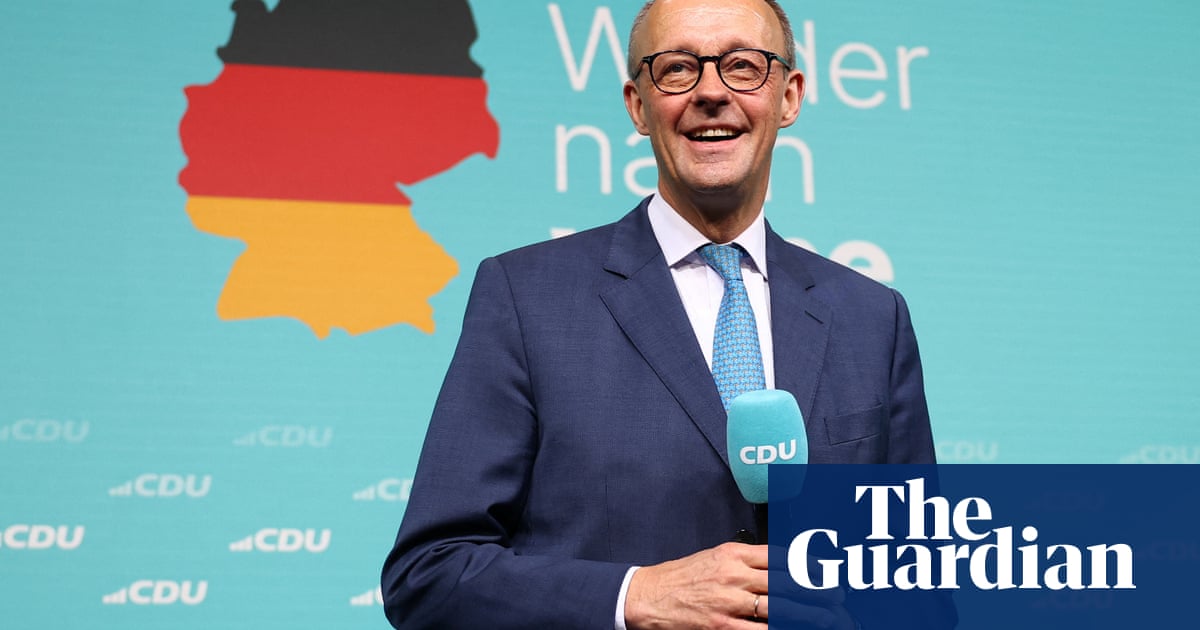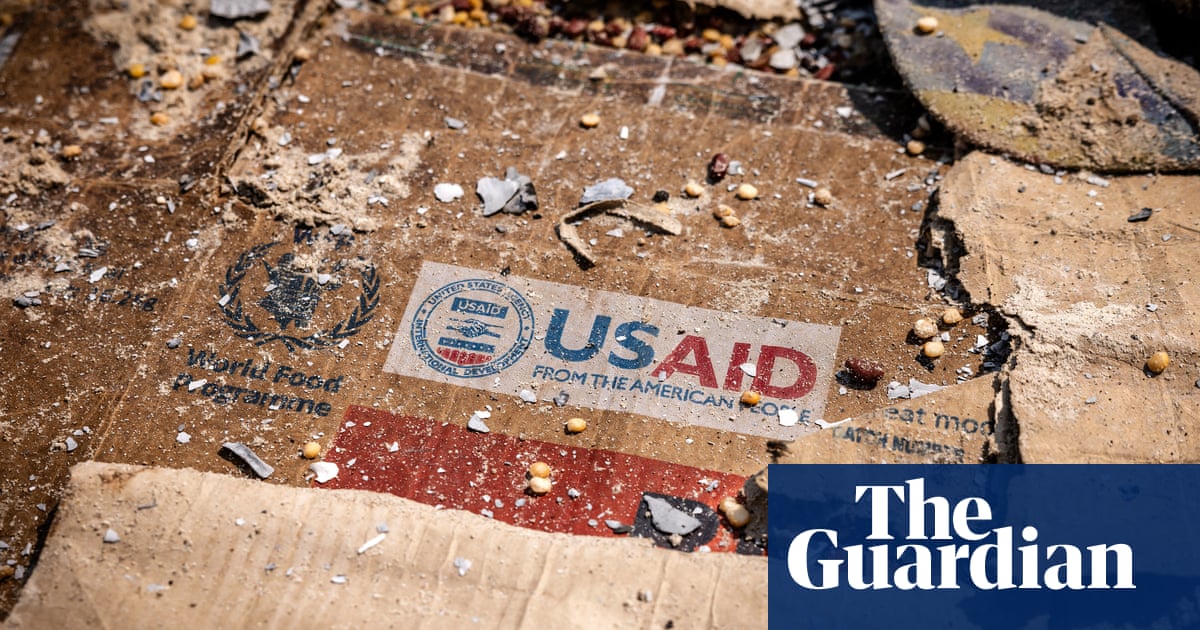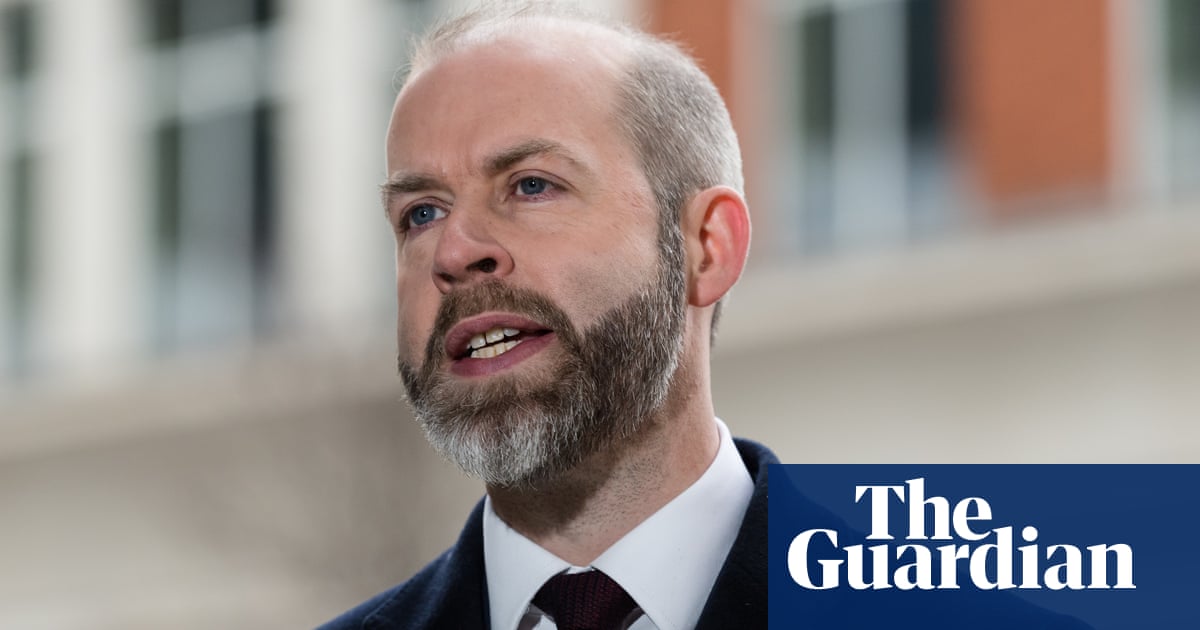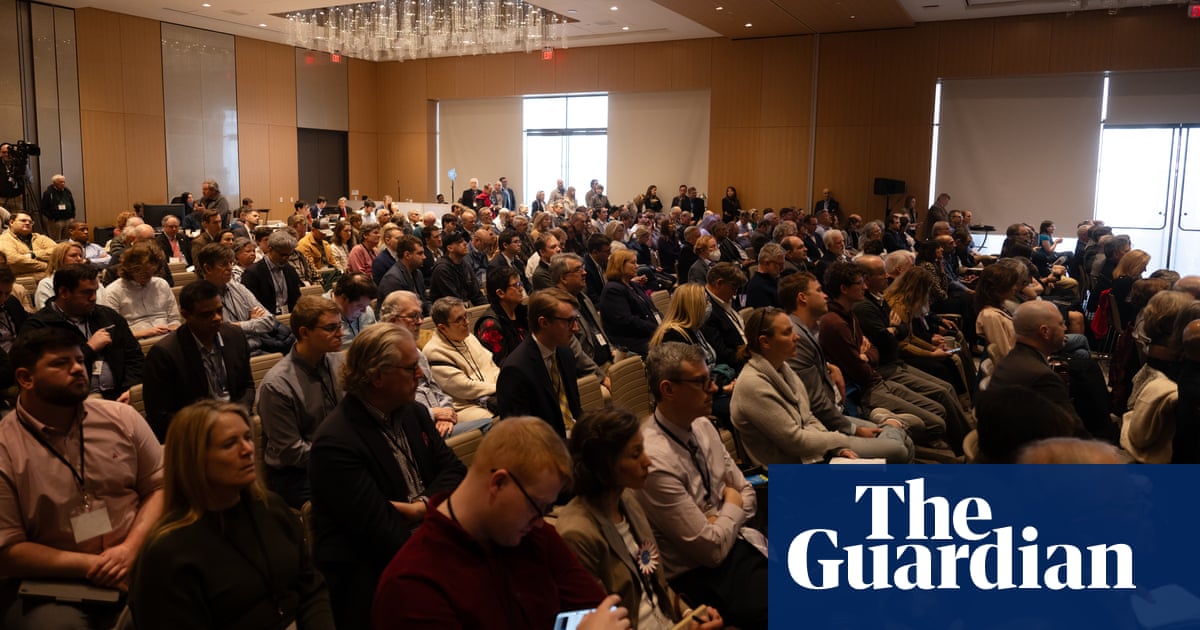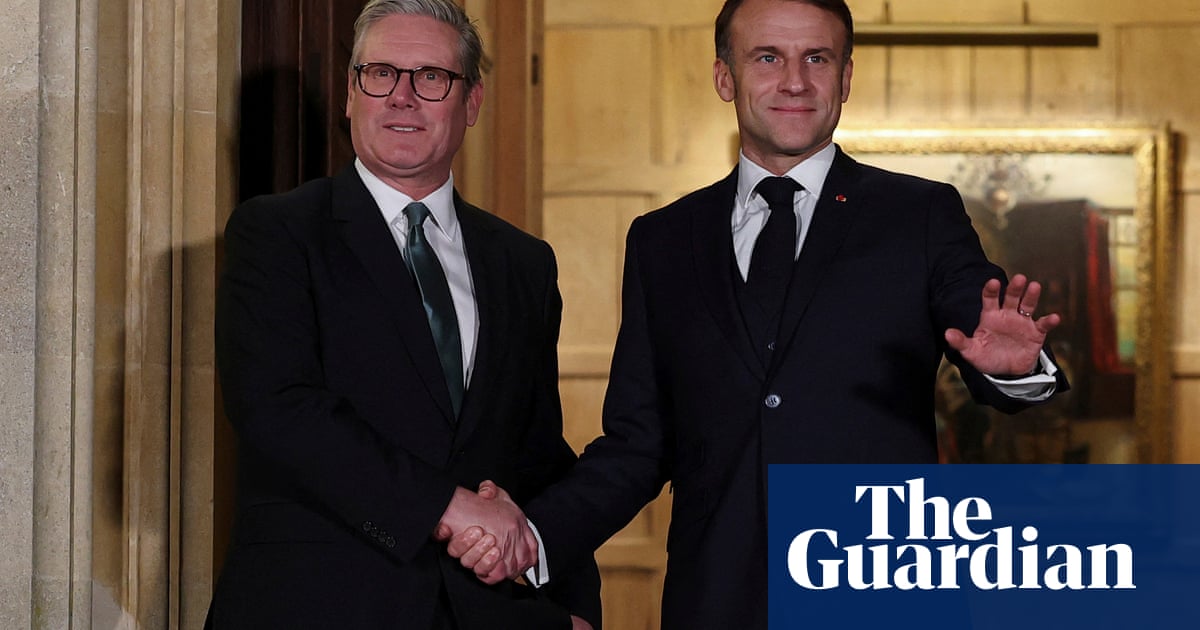
Of all Donald Trump’s cabinet nominees so far, Doug Burgum has stood out for appearing to be one of the most conventional.
The billionaire governor of North Dakota – like most picks to lead the Department of the Interior, the largest landowner in the US west – comes from a western state. He is not a conspiracy theorist, he hasn’t been investigated for sex trafficking. Unlike the president-elect’s pick to lead the Department of Energy, he is not a fracking CEO.
“He’s not a lunatic,” said Patrick Donnelly, the great basin director for the Center for Biological Diversity. “He’s not someone wholly inappropriate for the job. But I fear the way his extractive agenda will play out in public lands.”
Over the next four years, Burgum is poised to radically remake the agency that oversees 500m acres (200m hectares) of public lands, including national parks and wildlife refuges. A former software executive and one-time climate pragmatist, Burgum has become closely enmeshed with oil and gas industry executives.
Burgum led the Trump campaign’s development of its energy policy. After Trump asked oil executives to steer $1bn toward his campaign, Burgum promised them Trump would halt Joe Biden’s “attack” on fossil fuels. As Trump makes good on his promise to “drill, baby, drill”, Burgum will be overseeing the department that expedites those drilling permits.
“There’s going to be an effort to get every ounce of fuel out of the ground and burn it,” said Daniel R Patterson, a former environmental protection specialist for the Bureau of Land Management (BLM), a division of interior, who filed a whistleblower complaint during the first Trump administration. “And if we do that, we’re burning ourselves.”
Burgum had long had an affinity for Teddy Roosevelt, the US president who established the national parks system and was a champion of the outdoors. Roosevelt was from New York, but had a special connection to the Dakotas, seeking solace in the region’s sweeping badlands.
The 26th president was also known for his machiavellian political philosophy. “Teddy Roosevelt encouraged America to speak softly and carry a big stick,” Burgum said at the Republican national convention in Milwaukee. “Energy dominance will be the big stick that President Trump will carry.”
In addition to managing the interior department, Trump has also tasked Burgum with serving as an “energy czar”, overseeing energy policy across the federal government at the helm of a new “national energy council”.
He will be, in essence, a fox guarding the henhouse – in a position to tear down environmental regulations, and ramp up extraction. “We’re going to see a hard turn, to almost complete hostility to conservation interests,” said Patterson.
With Burgum at the head of the department, Patterson added, “the direction from DC is going to be to permit as much resource exploitation as possible. And interior employees are going to be asked to push the boundaries of the law more.”
Burgum’s zeal for extraction – and his focus on ramping up oil and gas production – could make him more efficient and effective than Trump’s previous interior secretaries. Trump’s first interior leader, Ryan Zinke, racked up 18 ethics investigations in just under two years. His replacement David Bernhardt was also dogged by allegations of ethics violations – and was investigated for carrying on his work as an oil industry lobbyist even after he joined the administration.
Burgum’s relatively short political career has not been without scandal. During his short-lived presidential bid, he drew attention for offering $20 gift cards to people who would donate $1 to his campaign, so he would have enough individual donors to make the Republican primary debate stage. But until quite recently, Burgum was viewed as a relative moderate.
Initially, he was known for his bipartisanship and pragmatism. Tribal leaders in North Dakota have credited him with smoothing tenuous relationships between tribal and state governments, and though he urged the federal government to take quicker action to clear out protesters of the Dakota Access Pipeline, he advocated against using force after taking over as governor toward the end of the standoff.
He was never a progressive champion of climate action – but he promoted the same “all of the above” approach to energy that Democratic administration have supported, backing North Dakota’s powerful oil and gas industry while also encouraging the development of renewable energy infrastructure. In 2021, he set a goal that North Dakota would stop adding carbon dioxide to the atmosphere by 2030, becoming “carbon neutral” – advocating for a plan that retained the state’s fossil fuel industries while investing in carbon capture and storage technologies to offset emissions. At the time, environmental groups supported Burgum’s pledge, but noted the impracticality of relying on unproven carbon capture technology rather than a transition away from fossil fuels.
But in the past year and a half, Burgum underwent a Maga conversion, becoming one of Donald Trump’s closest advisers on energy policy, coordinating closely with oil industry executives.
At a now infamous meeting between Trump and oil executives were Burgum and Harold Hamm – the head of Oklahoma-based energy company Continental Resources. The two men are close allies in politics and business.
Hamm has donated to Burgum’s political campaigns ($250,000 to his presidential bid), and help finance his pet projects (giving $50m to fund the Theodore Roosevelt library in North Carolina). His Continental Resources, which is the largest oil and gas leaseholder in North Dakota, also leases land from Burgum’s family for oil and gas extraction.
And their chumminess blossomed as Hamm, who has become one of Trump’s biggest benefactors and advisers, reportedly helped talk up Burgum at Mar-a-Lago. As a profile of Hamm in the industry publication Hart Energy asserts: “When Harold Hamm talks US energy, President-Elect Donald Trump listens.”
Burgum and Hamm worked in tandem to shore up support for Trump among industry executives. And a now infamous meeting with executives where Trump asked for $1bn in support, Burgum promised that if elected, Trump would “stop the hostile attack against all American energy” on “day one”, according to a recording obtained by the Washington Post.
In his dual role as energy czar and interior secretary, environmentalists are bracing for him to gut regulations and speed-up permitting in ecologically vulnerable regions – further opening up the Arctic national wildlife refuge in Alaska for oil and gas exploration, or welcoming uranium and coal development in areas bordering the Grand Canyon.
Trump has given Burgum one diktat: drill. Conservationists fear Burgum is likely to oblige not with sweeping action, but by way of a thousand cuts to environmental rules and regulations, allowing not only oil and gas companies, but also mining companies and other businesses unencumbered access to public lands.
“The reality is, BLM approves everything that comes in front of them, and that’s true no matter who is present in the White House,” said Donnelly of the Center for Biological Diversity. Of greater concern, he said, is how that permitting happens.
“That’s something I really fear, because the ramifications of the first Trump administration are still extremely present in our lives,” he said.
During his first administration, Trump oversaw the rollback of more than 125 environmental rules, many with the aid of the interior department, whose secretary will wield vast power over how environmental regulations are interpreted and implemented.
For example, the BLM created new rules to roll back restrictions on methane releases from oil and gas wells. A US district court eventually found the rule to be flawed, but then a Wyoming court struck down Obama-era restrictions on methane that preceded the Trump rule. All the while, companies were allowed to release methane unfettered.
Burgum could also help Trump gut the interior department, reducing staff at key offices that oversee vast areas of public land – undermining the department’s ability to monitor public lands and enforce regulations. Career interior employees may also choose to retire or leave.
“Public employees largely do these jobs because they believe in the public interest,” said Patterson. “If a new political boss comes in and tries to turn the agency into a giant bulldozer to pave the way for moneyed interests, they may not want to be a part of that.”
There were 4,900 fewer employees at the interior department at the end of Trump’s first term compared to the beginning. “We know there’s a big emphasis and thrust of the incoming administration on reducing the size of the federal government, and we worry that BLM will once again be in the crosshairs,” said Robert Dewey, vice-president for government relations with the non-profit group Defenders of Wildlife. “If it is targeted, that would have an impact on their ability to balance conservation along with their other objectives. And we worry that wildlife would suffer as a consequence.”
The administration faced several complaints and lawsuits over its rushed or inadequate environmental reviews, including over its environmental impact statement (EIS) for an oil and gas leasing program in the Arctic National Wildlife Refuge that environmentalists called “slapdash”. In 2020, Patterson filed a whistleblower complaint alleging that the BLM district office ignored requirements in the National Environmental Policy Act, in one case allowing a gold mining operation to create toxic pit lake, rather than requiring it to build a more expensive and less polluting system for wastewater. Patterson also alleged retaliation, and the complaint was eventually dismissed in a legal settlement.
“Right now, one of the only things standing in the way between this extractive boom, you know, ruining our public lands and driving species to extinction, are bedrock environmental laws,” said Donnelly. “And groups like ours, who are willing to stop these things.”
If Burgum and the incoming Trump administration are able to dismantle those laws, he said, it could have consequences that persist well beyond the next administration. “This could be extremely devastating for the future,” he said.

 2 months ago
45
2 months ago
45


